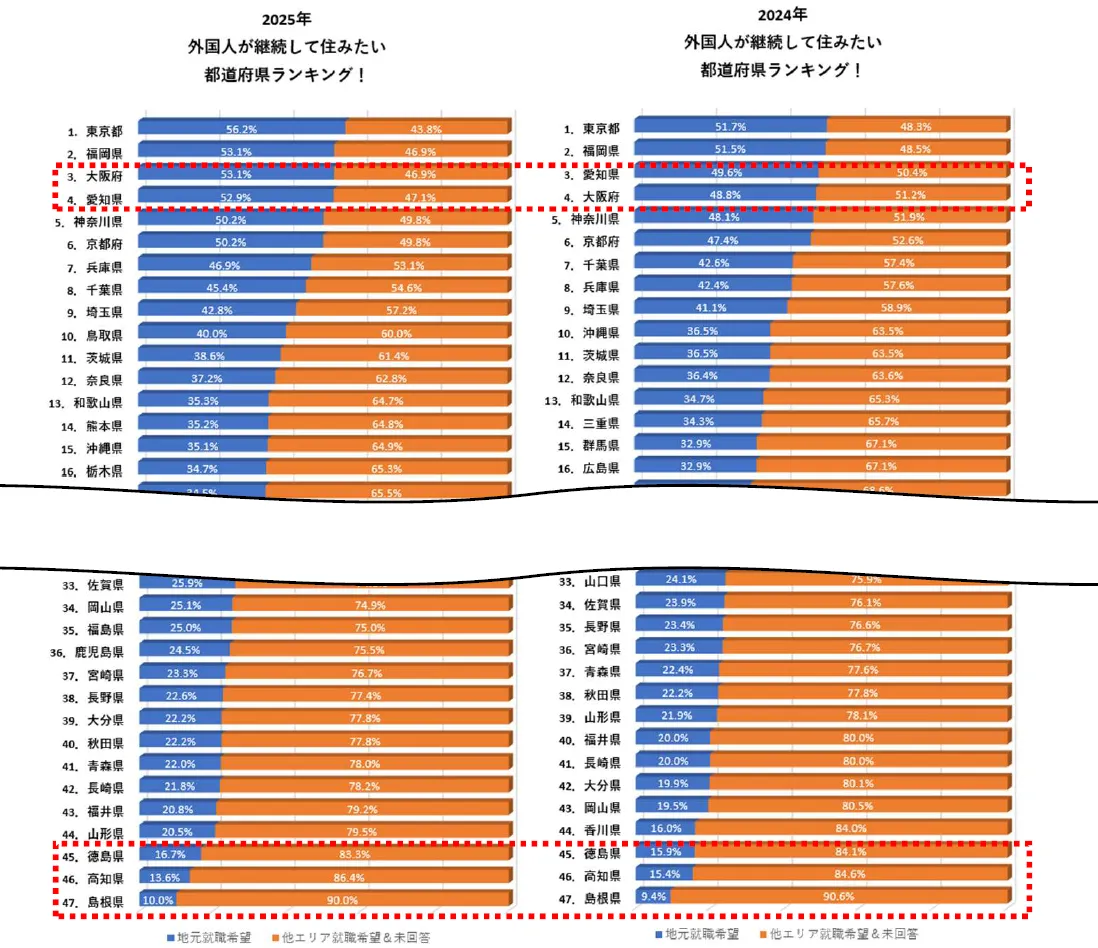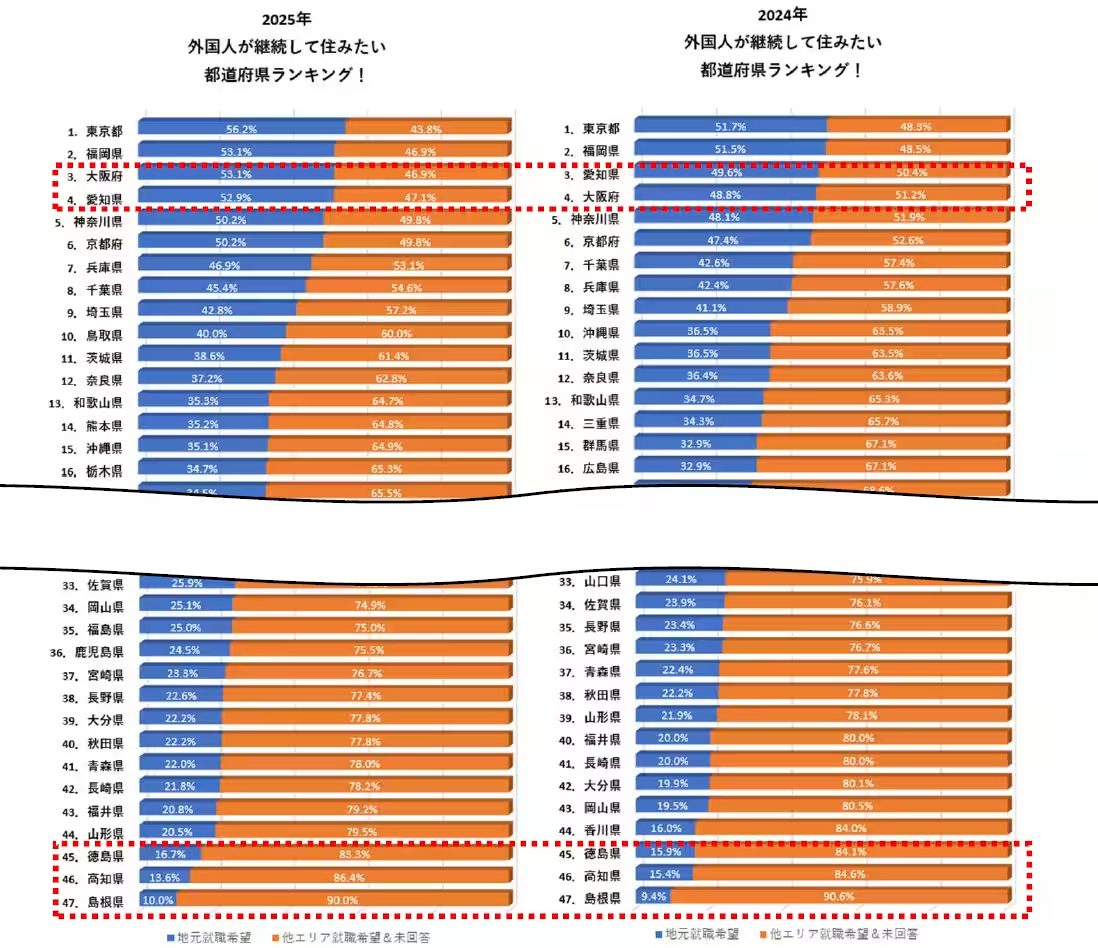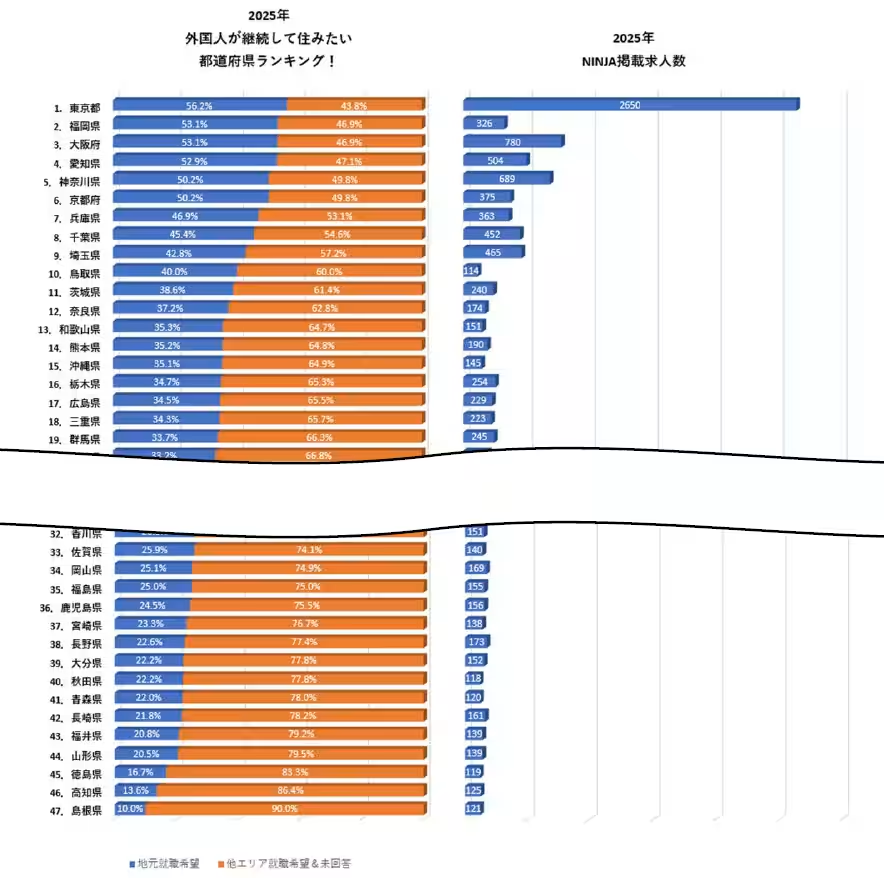

2025 Survey Reveals Japan's Most Desirable Prefectures for Foreign Residents
2025 Survey of Preferred Prefectures for Foreign Residents in Japan
A recent survey conducted by Global Power, which operates the employment support site NINJA for foreign job seekers, has unveiled the most desirable prefectures for foreign residents in Japan for 2025. Following a similar survey carried out in 2024, this ranking is considered pivotal given the declining working-age population in Japan and the increasing role of foreign talent in the economy.
Background of the Survey
Japan's demographic dilemma continues, with a diminishing workforce compelling industries and local economies to integrate more foreign workers. Foreign residents are not merely seen as labor but are integral to domestic demand and overall economic activities. For the country to attract foreign talent effectively, it is critical to foster an environment where they feel valued and happy to live in Japan. This survey aims to provide insights to local governments on how to create such environments.
Survey Details
- - Participants: The survey drew responses from 49,498 active users of NINJA, who have made their resumes public and are open to job offers as of May 27, 2025.
- - Methodology: The analysis focused on the respondents' current residences as proxies for preferred working locations, facilitating a ranking by prefecture. Non-responders were categorized as uninterested in their current locations.
- - Target Participants: These included holders of residency statuses such as Technical, Humanities, International Services, Student, and specific activities. Approximately 80% fall into the high-skilled foreign talent category or are aspiring candidates.
Ranking Results for 2025
The top six prefectures in the survey were:
1. Tokyo (remains 1st)
2. Fukuoka (remains 2nd)
3. Osaka (up from 4th)
4. Aichi (down from 3rd)
5. Kanagawa (remains 5th)
6. Kyoto (remains 6th)
Insights into the Ranking
Osaka's rise to the third position can be attributed to the 2025 Osaka-Kansai Expo, which is expected to increase demand for foreign talent in tourism, hospitality, and interpretation. Additionally, there was a notable increase in international students, with a rise of 33.7% compared to the previous year.
On the other hand, Tottori Prefecture made a remarkable leap from 30th to 14th place, marking a 16-rank increase. This shift is likely due to proactive multicultural support systems and programs inviting international internships in IT and agriculture. The efforts signal a growing soft power initiative that emphasizes the importance of local engagement and government support in fostering a welcoming atmosphere for foreigners.
In contrast, Shimane, Kochi, and Tokushima Prefectures remained at the bottom of the list for another year, indicating that areas with fewer foreign-targeted job opportunities tend to have lower interest in remaining among foreign residents.
University Presence and Job Prospects
A significant finding indicates that prefectures with a high number of universities correlate with a greater desire among foreign students to settle locally. The Japan Student Services Organization (JASSO) data for 2024 revealed the following distribution of international students:
1. Tokyo (95,312)
2. Osaka (29,456)
3. Fukuoka (16,246)
4. Kyoto (15,663)
5. Hyogo (12,256)
6. Aichi (12,256)
Fukuoka, despite not having the highest job numbers, maintained its 2nd place owing to the presence of a significant number of foreign students and an inviting community for foreign professionals. The city’s efforts as 'Gateway to Asia' through international exchanges and support for businesses have garnered positive responses from the foreign community.
About NINJA
NINJA is a job placement service tailored for foreign talent in Japan, boasting over 49,600 users, with 77% possessing business-level Japanese proficiency. The platform has garnered positive feedback for helping foreigners navigate the distinct employment landscape in Japan, offering guidance through various recruitment channels. For further statistics and insights on foreign employment in Japan, visit NINJA's official media reports.
Conclusion
As Japan grapples with its demographic challenges, the integration and retention of foreign residents become imperative for its economic and cultural future. The results of this survey serve as a valuable resource for policymakers and local governments aiming to create conducive environments for foreign talent.



Topics Business Technology)










【About Using Articles】
You can freely use the title and article content by linking to the page where the article is posted.
※ Images cannot be used.
【About Links】
Links are free to use.